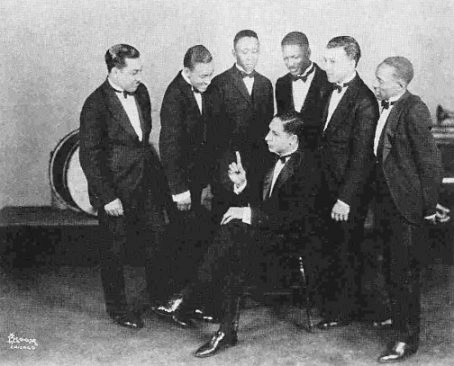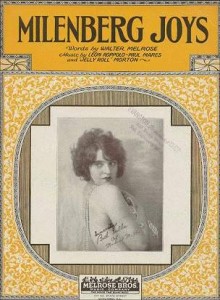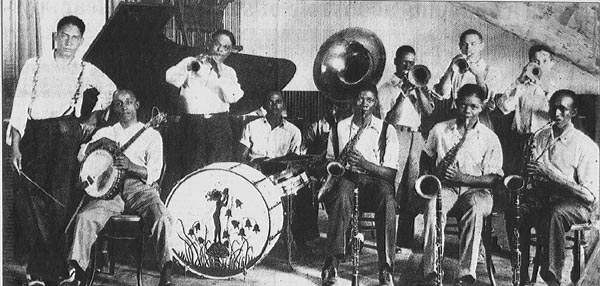Jelly Roll Morton had a tendency to exaggerate. On his business card he gave himself the title, 'Inventor of Jazz.' There was at least a kernel of truth behind his claim. Not only was he among the first important composers and recording stars in jazz, he appears to have been the first jazz musician to write down his compositions in musical notation. Morton's body of work remains at the core of many classic jazz bands’ play lists.
It doesn’t take long to recognize the distinctive voice of a Jelly Roll Morton composition. His genius was to combine a playful, improvised spirit with the formal musical elements of ragtime that surrounded him as a young piano 'professor' employed in New Orleans bordellos in the early 1900s.
By the time he made his landmark Red Hot Peppers recordings in the 20s Jelly Roll's compositions embodied both high and low music in America. Brass marching bands and ragtime, Italian opera, country blues and spirituals, tangos, New Orleans jazz and Caribbean rhythms—all rolled around in his brain, and influenced the music he wrote. Morton was a "walking treasury of the nation’s musical byways," as jazz writer Gary Giddins put it. The result was a distillation and summation of traditional New Orleans jazz—and also, in many ways, a band sound that foreshadowed the Duke Ellington Orchestra.
By the 1930s, except for a few of his tunes like "King Porter Stomp," that was adapted for swing bands, Jelly Roll and his music were largely forgotten. He spent the rest of his life struggling to get by, writing letters to publishers, ASCAP and periodicals to recover his lost royalties and reputation. In 1938 he wrote an article which appeared in Down Beat magazine, "I Created Jazz In 1902, Not W.C. Handy."
Shortly after he died in poverty in Los Angeles in 1941, the worldwide Classic Jazz Revival got under way, and Morton's status as a key pioneer of jazz was restored.
This week on Riverwalk Jazz The Jim Cullum Jazz Band welcomes singer Vernel Bagneris and the piano duo of Dick Hyman and John Sheridan in a concert of Jelly Morton's music and a discussion of key elements in his compositions.
Photo credit for Home Page: Jelly Roll Morton. Photo courtesy Institute for Studies in American Music, Conservatory of Music, Brooklyn College of the City University of New York.
Text based on Riverwalk Jazz script by Margaret Moos Pick ©2009




